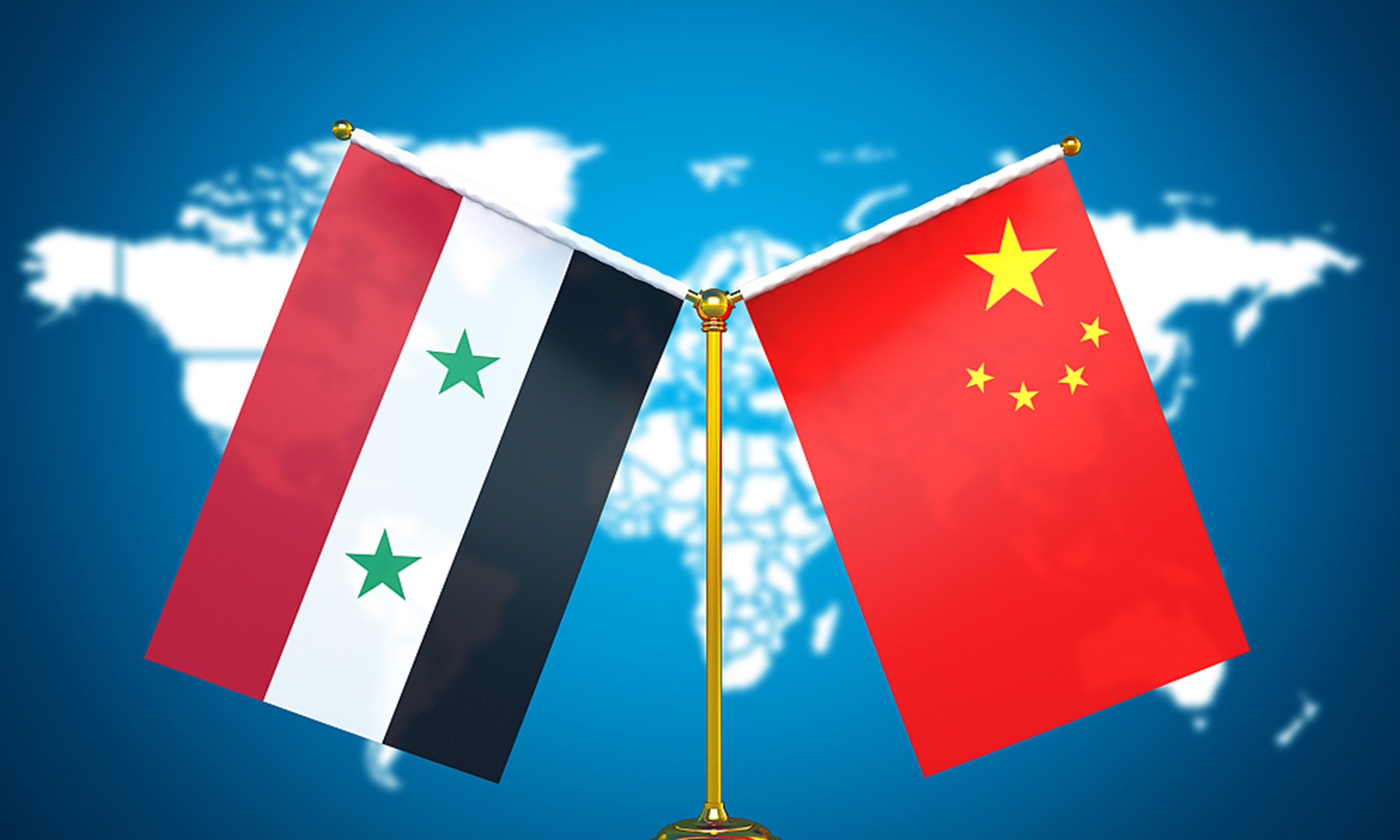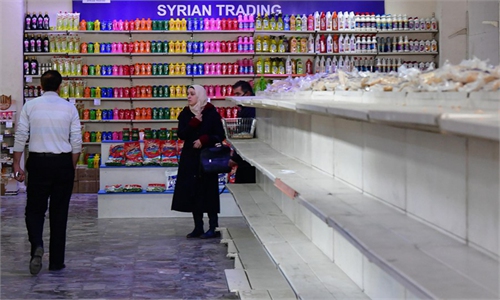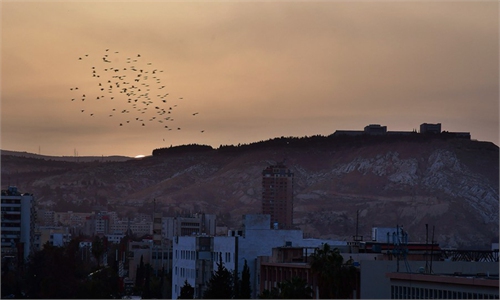Syria joins BRI to rebuild amid wars, Western sanctions, pandemic via cooperation with China

China and Syria. File photo: CFP
Syria on Wednesday joined China's Belt and Road Initiative (BRI), which experts said is a great achievement of the BRI as it now has connected with the whole Middle East, demonstrating its influence and appeal.
The achievement comes after Chinese President Xi Jinping's phone conversation with Syrian President Bashar al-Assad in November, 2021 and Chinese State Councilor and Foreign Minister Wang Yi's visit to Syria in July, last year. It also comes amid intensive visits of six other Middle East countries' foreign ministers to China. The move also demonstrates that China is playing an increasingly important role in coordinating the Middle East as the region is seeking development and stability via looking to the East amid COVID-19 and changing ties with the US.
The deal will help Syria open broad horizons of cooperation with China and other countries and rebuild itself amid wars and economic sanctions from the West, like how China has helped Iraq, experts noted.
The ceremony of Syria's admission into the BRI took place at the Planning and International Cooperation Commission in the capital Damascus and was attended by Fadi Khalil, the head of the commission, and Feng Biao, China's ambassador to Syria, during which both sides signed a Memorandum of Understanding (MOU) on Syria joining the BRI, the Xinhua News Agency reported.
The BRI, proposed by China in 2013, comprises the Silk Road Economic Belt and the 21st Century Maritime Silk Road, aiming to build a trade, investment, and infrastructure network connecting Asia with other parts of the world along the ancient Silk Road trade routes and beyond.
Besides Syria, Nicaragua also signed an MOU to jointly push the Silk Road Economic Belt and the 21st Century Maritime Silk Road on Wednesday as China and the Central American country moved closer to strengthen bilateral relations and economic cooperation.
"More and more countries joining the BRI amid the impact of the pandemic indicates that development and exchanges are what the world wants to see. For Arab countries, economic development is a precondition for them to step out of chaos caused by wars, for which, the BRI will be a good opportunity," Wang Yiwei, director of the Institute of International Affairs at Renmin University of China, told the Global Times on Thursday.
The severe impact of the COVID-19 pandemic on the Middle East has made countries in the region realize that the US' strategy would not do them good. The priority for these countries is to defeat the pandemic and revive their economies as soon as possible. China has proven to be the appropriate partner to work with in both fields, experts noted.
Khalil said the admission of Syria into the initiative revives the old role of Syria in the ancient Silk Road and will help in boosting bilateral cooperation with China and multilateral cooperation with other countries.
Feng added that the cooperation between the two countries provides the greatest contribution to the economic reconstruction and social development of Syria and it also enhances the harmonization between the BRI and the eastward strategy proposed by Syria.
The ambassador said the BRI is in line with the desire of the world for broad economic participation, noting that the initiative has become the biggest international cooperation platform in the world.
"Syria's participation in the BRI means that the BRI now has no blind angle in the Middle East, demonstrating its influence and appeal," said Zhou Rong, a senior researcher at the Chongyang Institute for Financial Studies at Renmin University of China.
Syria, long crippled by Western sanctions, has been struggling economically and is eager to rebuild itself. Cooperation with China under the BRI will revive Syria's economy and help it fight the pandemic, Zhou said.
Damascus faces a serious power shortage in part due to lack of necessary infrastructure. Any infrastructure-focused help to Syria will be a much-needed shot in the arm, said Zhou.
According to the Ministry of Commerce, Chinese investment in Syria had totaled $135.7 billion by 2019. The two sides' bilateral trade totaled $1.3 billion in 2019, a year-on-year increase of 3.3 percent.



